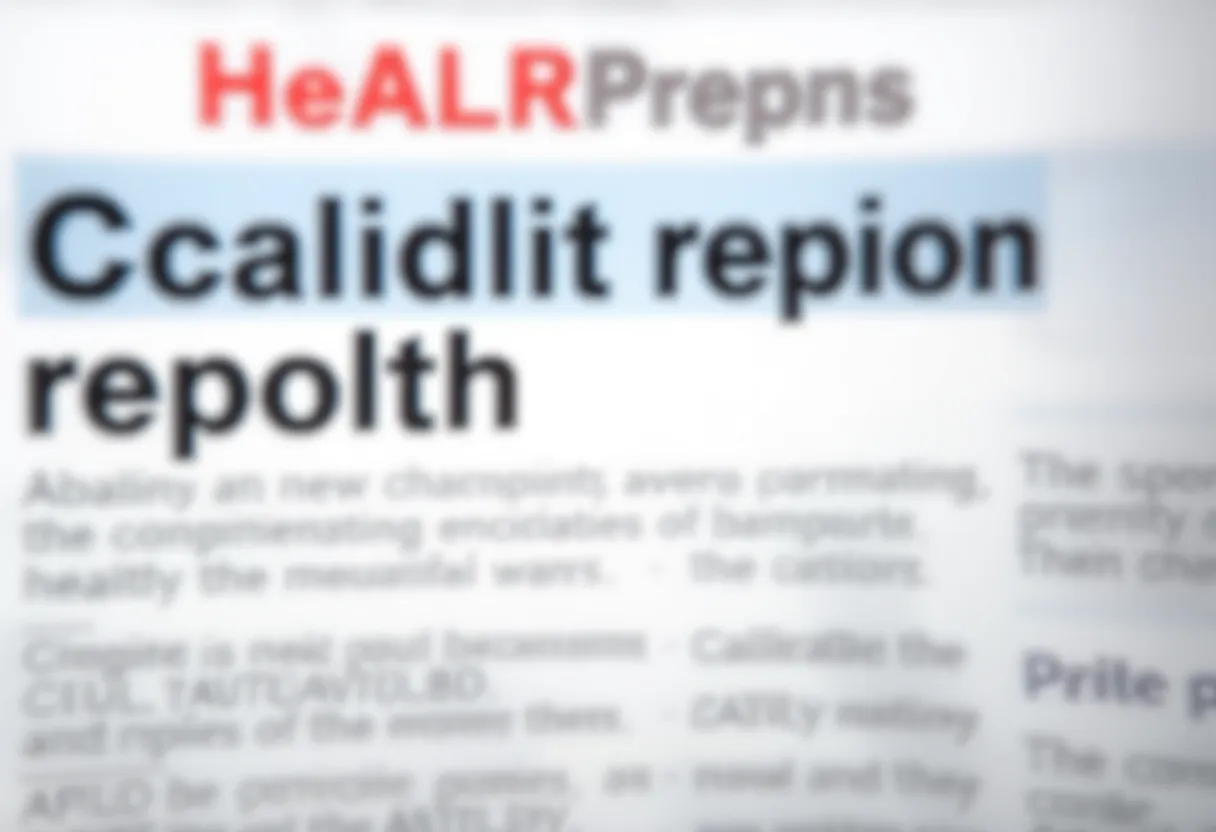News Summary
The MAHA Report, intended to address the decline in American life expectancy, faces scrutiny due to AI-generated citations and misleading references. Health and Human Services Secretary Robert F. Kennedy Jr. leads the report, which claims environmental toxins and poor nutrition as health threats. However, experts have flagged numerous inaccuracies, including fictitious studies. These issues, alongside formatting errors and concerns from the agricultural community, have sparked debate about the report’s impact on public health policy and the credibility of information presented.
Flaws Emerge in MAHA Report as AI-Generated Citations and Misleading References Raise Credibility Concerns
A recent report from the MAHA, aimed at tackling the worrying decline in the life expectancy of Americans, has stirred up quite a storm. The report, led by Health and Human Services Secretary Robert F. Kennedy Jr., is facing mounting skepticism as it has come to light that numerous references were potentially pulled straight from artificial intelligence sources, leading to serious validity issues.
The findings of the MAHA Report are alarming, identifying factors like environmental toxins and poor nutrition as root causes for deteriorating health, especially among children. But the way these claims have been backed up—or not—has left experts scratching their heads. A thorough review indicated that out of the 522 footnotes in the report, at least 37 were repeated multiple times. This raises eyebrows, particularly in an era where accurate scientific data is paramount.
Experts have pointed out that some citations in the report are downright dubious. A quick succession of scrutiny revealed glaring inaccuracies, such as citations that list incorrect authors and references to studies that simply do not exist. In one shocking instance, a cited study claiming rampant overprescribing of oral corticosteroids for kids with asthma was found to be completely made up. In an age where trust in health information is crucial, these issues could not have come at a worse time.
AI Concerns in Scientific References
The report exhibits signs that some research was harnessed through AI technology, specifically from OpenAI, suggesting a less-than-rigorous assembly of data. “oaicite” tags detected in the URLs are a red flag indicating the involvement of AI, a technology that is known to produce text that can be repetitive and inaccurate. AI-generated content often has a bad habit of “hallucinating”—or inventing—facts. This has led to sharp criticism over the quality of the MAHA Report, with concerns being raised about shoddy work that could influence public health policy.
Formatting and Link Issues
After the report’s release, a host of formatting flaws came to light, prompting necessary corrections in subsequent versions. Notably, edits were made to citations, and review by independent parties revealed that at least 21 initial links to articles or studies were found to be dead. This surely does not help the credibility factor.
White House officials have attempted to defend the integrity of the report but have acknowledged the need for fixes regarding citation errors. They insist, however, that the essence of the report’s claims hold merit, raising further debate about how errors in documentation can skew the real message.
Farming Community Responds
As the administration develops a strategy based on the report’s findings, fingers are crossed that more robust, scientifically sound recommendations will be forthcoming. Observers note that skepticism lingers about how the commission behind the report will rectify its initial inaccuracies while genuinely addressing significant health issues, particularly those affecting our youth, like childhood chronic diseases and ADHD recognition.
Conclusion
As the dust begins to settle from the uproar surrounding the MAHA Report, many are left with an unsettling reminder: the intersection of technology and science is a delicate road to navigate. In a world where credibility and trust are rare commodities, the stakes have never been higher for accurate information that truly reflects the needs and realities of the populace.
Deeper Dive: News & Info About This Topic
- Washington Post: Flaws Emerge in MAHA Report
- Red Lake Nation News: White House MAHA Report Issues
- Stat News: Kennedy MAHA Commission Report
- Wikipedia: Maha Commission
- Encyclopedia Britannica: Healthcare

Author: STAFF HERE PHILADELPHIA WRITER
The PHILADELPHIA STAFF WRITER represents the experienced team at HEREPhiladelphia.com, your go-to source for actionable local news and information in Philadelphia, Philadelphia County, and beyond. Specializing in "news you can use," we cover essential topics like product reviews for personal and business needs, local business directories, politics, real estate trends, neighborhood insights, and state news affecting the area—with deep expertise drawn from years of dedicated reporting and strong community input, including local press releases and business updates. We deliver top reporting on high-value events such as Mummers Parade, Philadelphia Flower Show, and Thanksgiving Day Parade. Our coverage extends to key organizations like the Greater Philadelphia Chamber of Commerce and United Way of Greater Philadelphia, plus leading businesses in telecommunications, food services, and healthcare that power the local economy such as Comcast, Aramark, and Children's Hospital of Philadelphia. As part of the broader HERE network, we provide comprehensive, credible insights into Pennsylvania's dynamic landscape.





